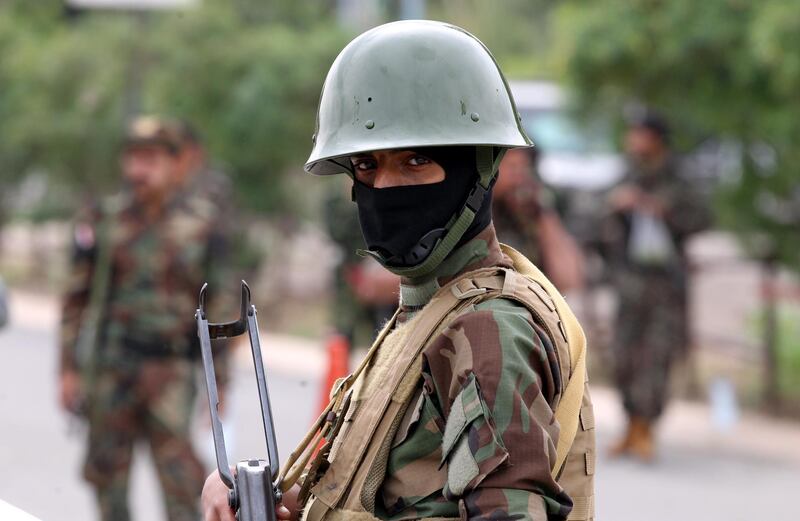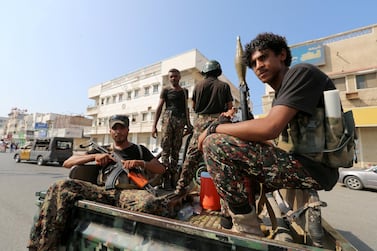Houthi rebels are threatening to acquire and use new air weapons after a meeting between the group’s representatives and Iran's Islamic Revolutionary Guard Corps leaders.
Yahya Saree, spokesman for the rebel forces in Yemen, and Muhammad Felita, the group’s self-proclaimed foreign minister, visited Tehran this week where they met Iranian Foreign Minister Javad Zarif and military officials.
Houthi rebels have increasingly used Iranian missiles and drones to launch attacks on Saudi Arabia since 2017.
Other Iranian weapons have been uncovered, although a UN Security Council Resolution implemented a ban on sales or transfers of arms to the Houthis.
Members of the Saudi-led Coalition supporting the internationally recognised Yemeni government have criticised Iran for transferring high-tech weapons and rockets to the rebels, who then launch them at Saudi Arabia.
In May, two pumping stations on the Saudi East-West oil pipeline were damaged by drones.
On June 12, the Houthis fired an Iranian-made Ya Ali cruise missiles at the southern Saudi airport of Abha, wounding 26 civilians. The airport was hit again on June 23 and for a third time on June 25.
"In the near future, we will talk about the air defence forces and the ongoing development of the air defences,” Mr Saree said after the visit to Tehran.
The development and use of more sophisticated air defence weapons would mark could worsen the conflict.
The coalition, and Saudi Arabia in particular, rely on air superiority to stop the rebels gaining ground and hit bases used to fire rockets and drones across the border.
Meanwhile, in the rebel held capital of Sanaa, Houthi forces continued to go door to door and carry out searches in the streets days after Ibrahim Al Houthi, brother of Houthi leader Abdulmalik Al Houthi, was assassinated.
A source in Sanaa said the young Houthi leader's body was found in his house and attributed his murder to deep rifts among senior leaders in the Houthi movement.
Ibrahim was born in Dhahyan district in 1982 and played a leading role in storming Sanaa, starting with a protest in August 2014.







